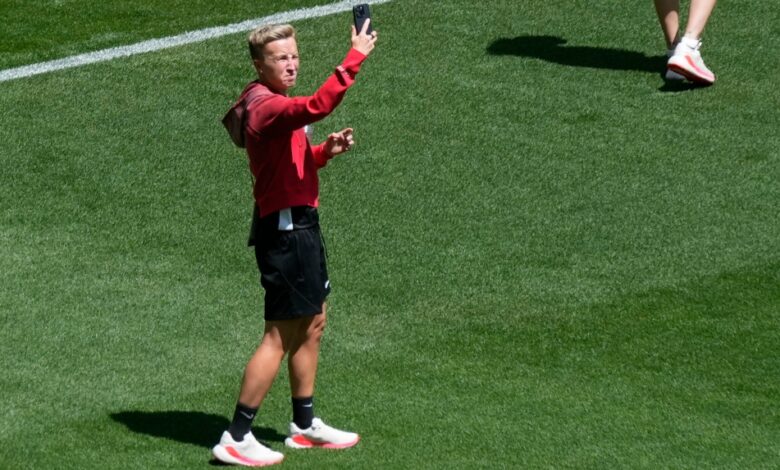Dirty tricks nothing new to soccer

Dirty tricks are nothing new in world football. Rivals have long looked to give themselves a competitive advantage or to unsettle the opposition.
“The truth is it has gone on forever and I have seen it all,” said a former Canadian men’s team coach. “Including opposition staff pretending to be cleaning the stadium. I don’t condone it and always made it clear to my staff. Unless it was an open training session.”
“Not sure it’s rampant but I’m assuming others are doing it,” said another former Canada men’s coach. “The better technology gets, the more it will be utilized to gain a competitive advantage by those that choose to do so.”
Both coaches asked not to be quoted by name, saying they wanted to steer clear of the current controversy.
Technology has indeed added to the dark arts arsenal.
Canada coach Bev Priestman, sent home from the Paris Olympics, is currently paying the price for one of her staffers using a drone to spy on a New Zealand training session.
There have been far cruder campaigns.
Canadian teams on the road in CONCACAF, which covers North and Central America and the Caribbean, are no strangers to fire alarms being pulled at their hotel or drum-beating fans outside in the wee hours. Or substandard practice facilities
And match day is not exempt.
Jason Bent, now an assistant coach with the Los Angeles Galaxy, recalls being hit with a plastic bag full of urine at a 2000 Canada-Mexico game at storied Azteca Stadium in Mexico City.
The Mexican fans were no amateurs. The loosely tied bag, which hit Bent’s leg, was designed to open on contact.
Before a World Cup qualifying game against Mexico in Vancouver in the ’70s, then-Canada coach Eckhard Krautzun stopped a training session and had a janitor kicked out of the stadium.
At the 2007 FIFA Women’s World Cup in China, Denmark complained of holes mysteriously appearing on pitches overnight and brass bands playing on the sidelines, to secret filming from nearby buildings.
The Danes also alleged that two men tried to film a Danish strategy session from behind a two-way mirror at the team hotel.
“I am in no doubt that FIFA and the Chinese police know who the two men are,” Allan Hansen, chairman of the Danish soccer federation, DUB, was quoted as telling the Danish newspaper Politiken at the time. “I and the Danish federation would also like to know who they are and what went on.”
China upset Denmark 3-2 at the tournament.
Denmark coach Kenneth Heiner-Moller, who later coached the Canada women, was subsequently banned for two matches by FIFA for failing to shake hands with his Chinese counterpart after the game.
Canada is not exempt from looking to make an opponent’s life miserable.
In September 1985, Canada Soccer (then the Canadian Soccer Association) elected to stage a key World Cup qualifier against Honduras in King George V Park in St. John’s, N.L., some 4,900 kilometres northeast of the Honduran capital of Tegucigalpa.
“We had thought `What the heck is the Canadian Soccer Association doing putting this biggest game Canada’s ever played — in Newfoundland?”‘ recalled Canada captain Bruce Wilson. “It was an outside park, to start with.
“Before the game, we got there and we were training and preparing and were going `Where are we?’ And we couldn’t believe it, to be honest.”
Then-coach Tony Waiters and CSA president Jim Fleming were following other CONCACAF countries in maximizing the benefits of playing at home.
“It wasn’t a very big crowd at the end of the day but I’m going to tell you what when we went out on the field, it was 100 per cent Canadian and they actually put us ahead a goal before the game began,” said Wilson. “It was a fantastic atmosphere.”
“The other team had no idea where they were,” he added. “And we really prospered.”
Just getting to St. John’s was a challenge. Some Honduran fans never made it, landing mistakenly in Saint John, N.B., where they watched the game on TV.
Canada won 2-1 to secure qualification for the 1986 World Cup.




